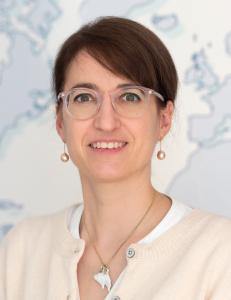Editorial
The coronavirus pandemic has turned life upside down in Germany, as it has throughout the world. Our society has been in a state of emergency since spring 2020: nurseries and schools, theatres, cinemas and restaurants have remained closed for weeks, and many businesses have had to slow down the rate of their work or even shut altogether. But although the pandemic has certainly left its mark on politics, it has not led to existential threats to democracy. There might still be a lot to improve in Germany, but we can and must trust in the stability of our political system.
On the international level, the pandemic has once again demonstrated the crisis within multilateralism. This is certainly nothing new, but it is worrying to see that even a virus spreading rapidly across the globe has not been enough to bring the world together and promote cross-border cooperation.
In 2020, the presidential election campaign in the United States and developments in Asia and Africa were decisive topics in international politics. Germany also took over the presidency of the Council of the European Union in the second half of 2020. At a foundation event in May 2020, the Konrad-Adenauer-Stiftung hosted Chancellor Angela Merkel, who used the occasion to set out her plans for the council presidency.
The past year has also been shaped by a number of important anniversaries for Germany and Christian democracy ranging from the 30th anniversary of the first free elections in the former German Democratic Republic (GDR) and the 75th anniversary of the end of World War II to the 30th anniversary of German reunification and the 75th anniversary of the founding of the CDU.
Many of our plans for a “normal” 2020 had to be adapted. In order to help limit the spread of the Covid-19 virus, we switched to working from home as early as mid-March 2020. During 2020, it was either impossible to hold major events or they had to be postponed or replaced with alternative formats. As a foundation, we had to adapt our usual ways of working within a very short space of time and it is remarkable how successful these changes have been. We gained a lot of experience and learned that online events can often go further than the face-to-face formats familiar to our traditional audience and reach new target groups. And we are very happy that the pandemic never really had a serious impact on the foundation’s core functions.
Our key topics have provided our work with the necessary direction during these troubled times. In the face of the pandemic, the core themes of security, innovation, and representation and participation have proved themselves to be highly relevant.
- To mark the 75th anniversary of the founding of the CDU, the Konrad-Adenauer-Stiftung published the anthology Christliche Demokratische Union. Beiträge und Positionen zur Geschichte der CDU (Christian Democratic Union. Contributions and positions on the history of the CDU) and received a lot of media attention.
- The Konrad-Adenauer-Stiftung Day in September 2020 focused on 30 years of German unification and the 90th birthday of Helmut Kohl. The highlight was a conversation between the Chancellor and Donald Tusk, the new chair of the European People’s Party (EPP).
- In October 2020, the Konrad-Adenauer-Stiftung welcomed Professor Armin Nassehi, our first KAS fellow, who is to accompany the work of the foundation for a year.
This annual report provides an overview of these and other diverse activities undertaken by the foundation.
During 2020, we also implemented a number of administrational changes. With a view to linking our national and international work more efficiently and effectively, the analysis units of the European and International Cooperation as well as the Policy and Consulting departments were merged into the new Analysis and Consulting department. Marketing and Publications were integrated into the existing Strategy and Planning department. Together with the Media Centre (press office and online communication) and the executive office, they now form the management team. Last but not least, we have massively upgraded our digital infrastructure in view of the changes made to our working practices, and this will certainly be useful for our work in the next few years.
In closing, we would like to take this opportunity to thank all of our staff for their commitment during this difficult year, the members of our committees for their constructive cooperation, and the Friends of the Konrad-Adenauer-Stiftung, our donors and sponsors and our partners for their support. We will continue to do everything in our power to live up to the trust that they place in us.
You can download the full report as pdf.
Please send any questions or comments regarding the annual report to publikationen@kas.de.




